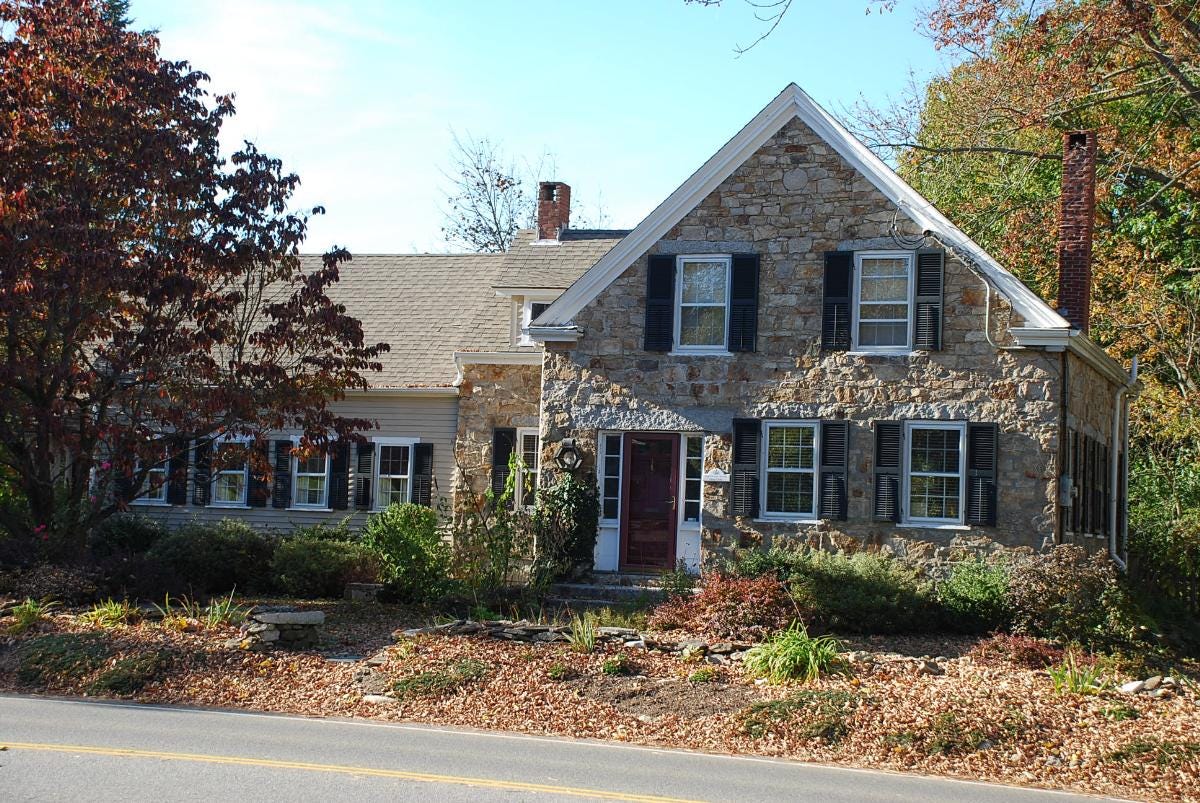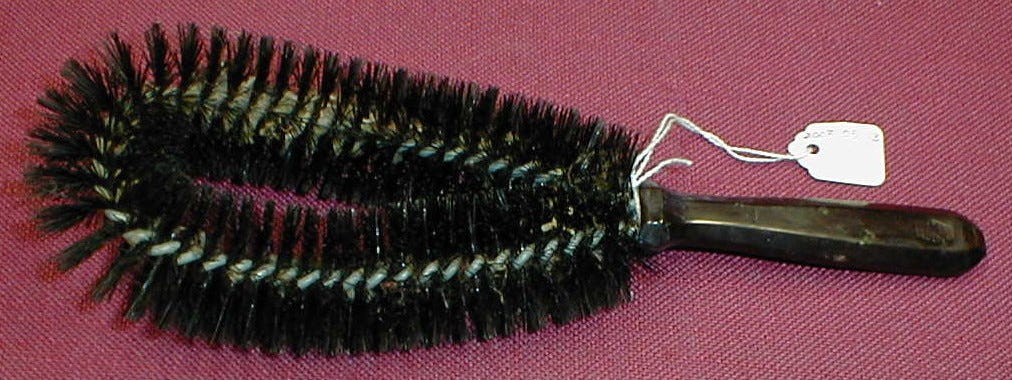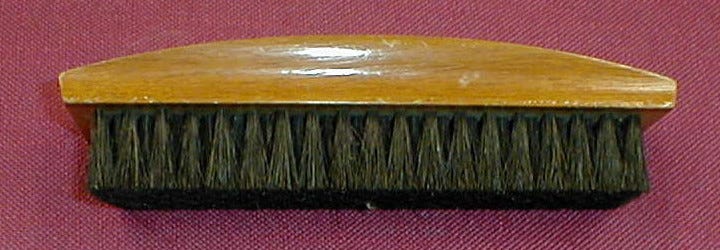Frye Village Fridays: Hardy Brush (pt3) If it hadn't been for the flu...
A flu that started a brush company
If you like this post, please share it! It’s easy! To share this post via email use the Share button below, then click on Copy Link, and paste that into your email to Share the Buzz!
“Have You Had the Flu? Once it started a Large Brush Company,” so proclaimed the headline in a February 1937 Andover Townsman article about Hardy Brush company owner Frank H. Hardy.
Frank Hardy moved to Andover with his family in 1890 when he was 19 years old. In St. John, New Brunswick, while still in his teens, Frank was superintendent of his father’s brush manufacturing plant. Between 1890 and 1896, Frank lived with his parents at 183 Lowell Street across from West Parish Church.
The story told in the 1937 article was that Hardy caught the flu while commuting to and from Boston. While recovering at home he decided he’d had enough of commuting. It was time to enter the family business.
The first Hardy Brush factory, C.A. Hardy & Co, was located in the barn behind the family’s house at 183 Lowell Street. The 1897-1898 Andover Street Directory listed father and son as employed by C.A. Hardy & Co.
While working with his father to build Hardy Brush, Frank also attended Phillips Academy, graduating in 1896 at age 25.
In October 1896, just a few months after graduating from Phillips Academy, Frank married Edith E. Downing of Lawrence, Mass. With a mortgage from the Punchard Free School Trustees, father and son purchased a lot across the street from 183 Lowell Street and built a house for Edith and Frank.
The couple would have one child together, Frank Kenneth Hardy, who did not join the family business. Frank K. graduated from Phillips with honors and went on to Dartmouth College. For a time father and son ran a corner store at Lowell and Beacon Streets in Andover. After graduation from Dartmouth, Frank K. became a telephone engineer. In 1925, he married Lavinia Willous in Chicago, IL.
The Hardy Brush Company
In 1901, Frank purchased the brush manufacturing business from his father and renamed it the Hardy Brush Company. They specialized in textile mill and vacuum cleaner brushes. The company’s reputation continued to grow and over time became known for the quality of its machine shop and engineering staff.
The plant continued to operate in West Parish until 1910. That year, Frank moved the operation to the former Smith & Dove and American Degreasing Company location in Frye Village. Later that same year, he started construction of a new factory building at 16 Haverhill Street. The old Smith & Dove mills buildings would be demolished to make way for the creation of Shawsheen Village.
Frank Hardy and William Wood
Prior to moving the company to Frye Village, Frank Hardy connected with William M. Wood, who was beginning work toward his vision of his planned community, Shawsheen Village.
Hardy was instrumental in the expansion of the West Parish Garden Cemetery in 1908-1909. This might be how Hardy and William Wood became friends and business associates. The new Hardy Brush factory buildings in Frye Village were built and owned by the American Woolen Company. The Brush company leased the building from the Woolen company.
Later, Hardy became an agent for the American Woolen Co in charge of construction of the mills, power plant, and executive administration building. The wood shop at Hardy Brush produced much of the woodwork in the administration building.
Frank Hardy held numerous patents related to brush manufacturing and, oddly enough, in 1915 he and Fred A. Lambert of Lawrence were awarded a patent for an electric vehicle. The last patent awarded was in 1937 for brush used in a sheering machine.
May 20, 1937, the Boston Globe reported a fire in the lumber shed at Hardy Brush that caused $50,000 in damage. The fire was reported on widely throughout the country.
Continuing a Frye Village tradition of outings for company employees - going back to Smith & Dove in the 1800s - in September 1940 the Townsman reported that employees of the various Shawsheen Village mills would travel to the Worlds Fair for a weekend on,
A special train leaving Shawsheen station...the passengers will enjoy all the comforts of their private train and refreshments and lunches will be served...All employees and near relatives over 18 years of age may order tickets...
Frank Hardy continued to run the Hardy Brush Company until his death in February 1946 at age 75.
For many years after Frank Hardy’s death the plant was managed by Charles W. Frank.
Sometime between 1947 and 1955, Hardy Brush became a division of the American Woolen Company. In 1955, American Woolen Co. merged with Textron, Inc., which sold the Hardy Brush Division to the National Tag & Label Co of Watertown, Mass. The newspaper reported that there would be “no changes to the name, company policies, or existing personnel.”
For the next 20 years, Hardy Brush Co. in Andover appears to have gone into a slow decline. In February 1960, the company threatened to leave town over a tax issue. And then the next month the Townsman reported that Hardy Brush was part of a large exhibit on industries in Andover at the Memorial Hall Library.
There were a few advertisements for help in the Boston Globe in the mid-1960s. Typical of the time, the December 22, 1966 ad was for “Female help wanted...secretary-receptionist, small office, Hardy Brush.”
At the same time, between 1956 and 1967, it appears that manager Charles W. Frank was down-sizing the business. In the Boston Globe, C.W. Frank listed sales of machinery, moving vans, and cars at Hardy Brush at 16 Haverhill Street.
The June 21, 1979 Andover Townsman reported that 16 Haverhill Street was in foreclosure sale. The next year, the former Hardy Brush factory was added to the Shawsheen Village National Register Historic District.
In 1982, a local developer purchased the Hardy Brush factory, old Shawsheen dairy, and another building to renovated for offices to be called “Village Commons Center. I remember taking my young daughters to an indoor playground in one of the buildings in the early 2000s.
The how-to of history
The beginning of new business ventures are usually well-documented, as announcements are made and newspapers cover openings. Finding the end of a company, I’ve discovered, is much harder. Companies are bought, sold, split-off, dissolved, and merged.
There are parts of the Hardy Brush company’s story outside Andover that I haven’t been able to pursue.
In textile industry journals, Frank Hardy listed himself as an “agent” of the Hardy Brush Co. In one textile journal directory, Hardy Brush was listed as having locations in Andover, Mass., and Kingston, NY. The next entry in the directory was the Herbert Brush Co., also listed in Kingston, NY. Herbert Brush was a much larger company with multiple plant locations that produced more than brushes. Was there a connection? (Just for fun: the Herbert Brush factory building is now Brush Factory Arts, Kingston, NY.)
Long after Hardy Brush closed in Andover, the name Hardy Brush keeps turning up. July 18, 1976, the Boston Globe ran ad for a real estate auction regarding Hardy Brush Corp on Merrimack Street in Lawrence, MA. In the 1983 Lawrence street directory, Hardy Brush Mfg was listed on Sutton Street. And there is a Hardy Brush Company in Sheffield, CT, today.
Could any of these be connected with the Frank H. Hardy Co. in Andover? Perhaps, but that’s a research project for another day.
What comes next?
There’s much more to Frank Hardy and his family than the business.
Next week we’ll move on to the Hardy family’s civic activities, with a story by History Buzz Guest Writer Gail Ralston.
Resources
Andover Historic Preservation website
Andover Street Directories, Memorial Hall Library
Andover Townsman, Historic Newspapers, Memorial Hall Library
Textile World Journal, Volume 59, 1921, Google Books
Brooms, Brushes, and Handles, Volume 23, 1920-1921, Google Books
U.S. Patent Office Gazette, Google Books















I'm so grateful to get these History Buzz writeups—they're all so interesting!